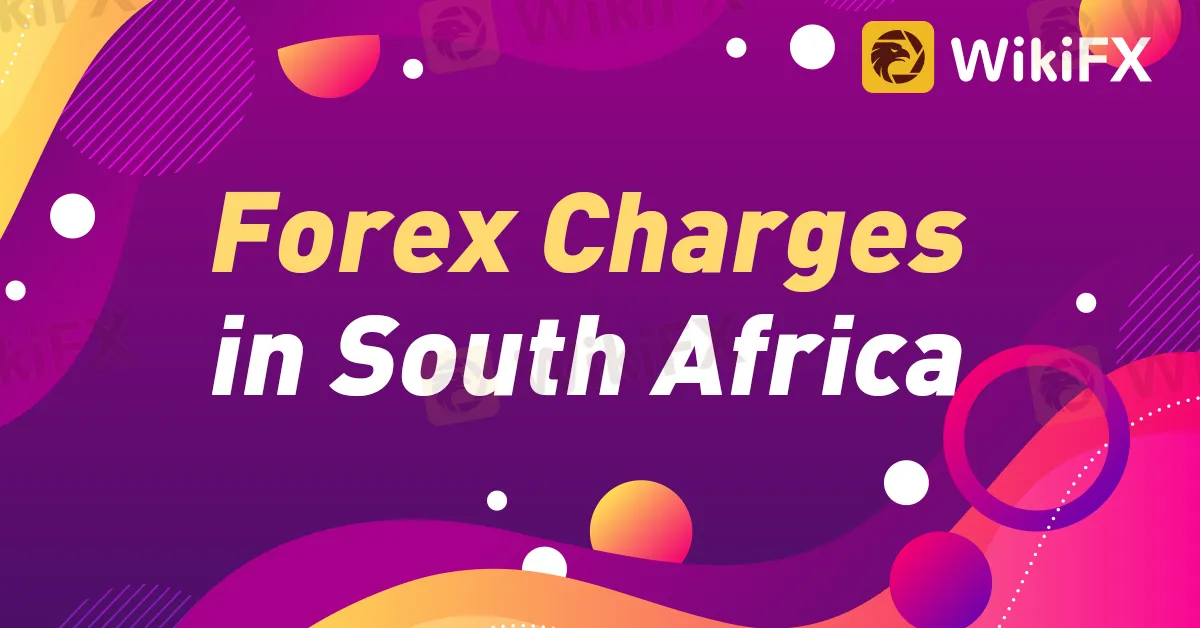简体中文
繁體中文
English
Pусский
日本語
ภาษาไทย
Tiếng Việt
Bahasa Indonesia
Español
हिन्दी
Filippiiniläinen
Français
Deutsch
Português
Türkçe
한국어
العربية
Forex Charges in South Africa
Abstract:Forex, short for foreign exchange, refers to the process of converting one currency into another. Forex trading has become increasingly popular in South Africa over the years, with many people trying to profit from the fluctuations in exchange rates between different currencies. However, before engaging in forex trading, it is important to understand the fees and charges associated with it.

Forex, short for foreign exchange, refers to the process of converting one currency into another. Forex trading has become increasingly popular in South Africa over the years, with many people trying to profit from the fluctuations in exchange rates between different currencies. However, before engaging in forex trading, it is important to understand the fees and charges associated with it.
In South Africa, forex traders are typically charged three types of fees: spreads, commissions, and rollover fees. Let's take a closer look at each of these fees:
Spreads:
The spread is the difference between the buy and sell prices of a currency pair. Forex brokers make their money by adding a small markup to the spread, which is how they earn their profit. The spread is typically quoted in pips, which is the smallest unit of measure in forex trading. The higher the spread, the more you will pay in fees.
Commissions:
Some forex brokers charge a commission on each trade that you make. This is typically a percentage of the total value of the trade. For example, if the commission is 0.1%, and you make a trade worth R10,000, you will pay R10 in commission fees. Commission fees can vary widely between brokers, so it's important to compare fees before choosing a broker.
Rollover fees:
Rollover fees, also known as swap fees, are charged when you hold a position overnight. Forex trading operates on a 24-hour basis, and if you hold a position for longer than one day, you will be charged a rollover fee. This fee is calculated based on the interest rate differential between the two currencies in the currency pair. Rollover fees can be a significant cost for traders who hold positions for long periods.
In addition to these fees, forex traders in South Africa may also be subject to taxes on their profits. In South Africa, forex profits are taxed as income, and the tax rate varies depending on your income bracket.
It's important to note that forex trading can be a high-risk activity, and it's not suitable for everyone. Before getting started with forex trading, it's important to have a solid understanding of the risks involved, as well as the fees and charges associated with it.
In conclusion, forex trading in South Africa can come with a range of fees and charges, including spreads, commissions, and rollover fees. It's important to compare fees between brokers and to have a solid understanding of the risks involved before getting started.

Disclaimer:
The views in this article only represent the author's personal views, and do not constitute investment advice on this platform. This platform does not guarantee the accuracy, completeness and timeliness of the information in the article, and will not be liable for any loss caused by the use of or reliance on the information in the article.
Read more

Tradu Introduces Tax-Efficient Spread Betting for UK Traders
Tradu’s introduction of tax-efficient spread betting and groundbreaking tools like the Spread Tracker signals a new era of accessible, competitive, and innovative trading solutions for UK investors.

Trading Lessons Inspired by Squid Game
The popular series Squid Game captivated audiences worldwide with its gripping narrative of survival, desperation, and human nature. Beneath the drama lies a wealth of lessons that traders can apply to financial markets. By examining the motivations, behaviours, and strategies displayed in the series, traders can uncover valuable insights to enhance their own approach.

RM5.9M Lost to "Davidson Kempner Capital Management" Facebook Scam
A private contractor in Malaysia faced a devastating loss of over RM5.9 million after falling victim to a fraudulent investment scheme promoted on Facebook. Tempted by the scheme’s impressive claims and credentials, the victim began investing in September 2024. The investment process required him to download an application called A-Trade, which was readily available on the Apple Store.

Challenge Yourself: Transform from Novice to Expert
From a forex novice to a trading expert, all it takes is this one opportunity! Join us for the Forex Beginner's Advancement Journey challenge and unlock your potential! Here, if you're a beginner, participating in the event and posting on selected topics will not only deepen your understanding of forex basics and help you advance but also earn you a Learning Encouragement Award. For those with some experience in forex, discussing insights under the event topics will allow you to exchange experiences and share techniques with like-minded peers, while also having the chance to win a Perspective Sharing Award! Come challenge yourself and break through the limits of forex trading together!
WikiFX Broker
Latest News
High-Potential Investments: Top 10 Stocks to Watch in 2025
US Dollar Insights: Key FX Trends You Need to Know
Why Is Nvidia Making Headlines Everywhere Today?
Discover How Your Trading Personality Shapes Success
FINRA Charges UBS $1.1 Million for a Decade of False Trade Confirmations
Bitcoin in 2025: The Opportunities and Challenges Ahead
BI Apprehends Japanese Scam Leader in Manila
Big News! UK 30-Year Bond Yields Soar to 25-Year High!
SQUARED FINANCIAL: Your Friend or Foe?
Join the Event & Level Up Your Forex Journey
Currency Calculator






